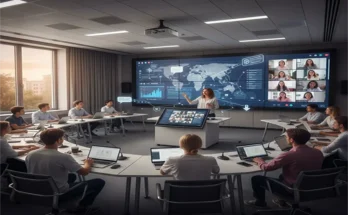When people picture technical training, they often imagine massive tool chests or workshops filled with rows of specialized equipment. The assumption is that more tools equal better preparation. Yet in practice, what matters most is not the number of tools available but their quality, relevance and use. Sonoran Desert Institute (SDI), accredited by the Distance Education Accrediting Commission (DEAC), reflects this truth in its approach to online technical training by emphasizing curated, purposeful kits over overwhelming quantities.
In technical education, having dozens of unnecessary tools can overwhelm students, distract them from core lessons and dilute the focus needed to master essential techniques. What matters most is precision, reliability and purpose, qualities that come from carefully chosen equipment. A streamlined toolkit ensures learners spend their energy on building skills, not sorting through distractions.
Myth 1 – More Tools Mean Better Training
It is easy to believe that bigger toolboxes lead to better preparation. Too many options can create confusion, especially for beginners. Without structure, students may waste valuable time deciding which tool to use instead of concentrating on the technique. A curated set of high-quality tools simplifies the learning process, removing distractions and ensuring that every exercise has a clear purpose.
This focus helps learners master form, precision and consistency, without second-guessing themselves. Over time, deliberate practice builds confidence, accuracy and efficiency, turning repetition into genuine skill. With the right instruments, students form strong habits that support their coursework and carry into professional settings, where clarity, responsibility and reliability matter just as much as technical ability.
Myth 2 – Basic Tools Can’t Teach Advanced Skills
Another misconception is that only advanced or expensive equipment can prepare students for complex work. In practice, mastery of fundamentals often comes from repeated use of reliable, well-made basic tools. A precise gauge, a dependable file or a sturdy practice component can teach the discipline and problem-solving skills that apply across every stage of training.
The strength of a program lies not in overwhelming students with variety, but in reinforcing the right techniques, with equipment that performs consistently. Once students have mastered foundational skills, they are prepared to adapt quickly to advanced tools later in their careers.
Myth 3 – Quantity Prepares You for the “Real World”
Some argue that exposure to as many tools as possible better reflects workplace conditions. Yet employers often value proven competence with essential instruments more than casual familiarity with dozens. A graduate who demonstrates accuracy, accountability and consistency with core tools is more job-ready than one who has handled many, but mastered few.
It is why SDI emphasizes depth, rather than breadth, in its at-home training kits. Students are required to document their projects, demonstrate progress and complete assessments that showcase their ability. This focus ensures their preparation is measured in results, not in the size of their toolbox.
Myth 4 – Online Programs Can’t Provide the Right Tools
Critics sometimes argue that remote education cannot replicate professional-grade experiences. Yet at-home training kits prove otherwise. By delivering carefully selected tools and parts directly to learners, online programs create a bridge between digital instruction and real-world practice.
These tools are not watered-down substitutes. They are chosen for their ability to support accurate practice, reinforce safety and help students meet industry standards. Combined with recorded demonstrations and instructor feedback, they ensure that online learners develop both technical knowledge and practical confidence.
Why Quality Tools Matter
High-quality tools provide distinct advantages that shape the learning experience. Reliable instruments deliver precision, helping students practice correct techniques from the very beginning. Their durability ensures they withstand repeated use, without losing accuracy, while consistent performance builds student confidence and allows full focus on the learning process. Well-designed tools prioritize safety, a critical factor in an at-home training environment. Together, these qualities give learners a solid foundation for long-term success, where every exercise reinforces accuracy, responsibility and steady progress.
Building Habits That Last
Technical education is about more than completing projects. It is about developing habits that last throughout a career. Practicing with quality tools teaches students to respect the process, value precision and take responsibility for results. Beyond the mechanics of using equipment, students learn to approach each task with patience and attention to detail, skills that extend far beyond the classroom or training environment.
Learners complete assignments, get feedback from instructors and build accountability along the way. This cycle of practice, reflection and improvement builds discipline, while teaching adaptability when challenges arise. Quality tools support this process by delivering consistent results, giving students confidence that their effort leads to real progress. Over time, these habits prepare graduates for professional environments, where precision and reliability are critical, while also equipping them with the mindset to keep learning and growing throughout their careers.
Success Stories
Graduates often highlight how curated kits gave them the confidence to practice effectively. One student explained that by mastering a small set of tools during his program, he built confidence that carried into job interviews. Employers valued his ability to demonstrate skill and deliver results, noting that his training prepared him for real-world challenges.
Stories like his prove that success depends not on how many tools are available, but on how well they are used. Quality-focused education equips students with discipline and adaptability that employers trust. These qualities help graduates transition smoothly from training into real-world roles. They also highlight how intentional learning environments prepare students for long-term growth, not just immediate tasks.
A Smarter Approach to Education
The belief that more tools automatically create better training is fading. Evidence shows that quality matters more than quantity. Programs that prioritize reliable, purposeful equipment prepare students for success with confidence and competence.
With curated training kits, structured instruction, and mentorship, institutions show that mastery comes from practice with the right resources. By focusing on quality over quantity, learners gain the skills and credibility to thrive in technical careers. In technical education, the measure of success is not the number of tools in a box but the ability to use them effectively. Quality tools provide clarity, precision and readiness, outcomes that matter far more than quantity.





